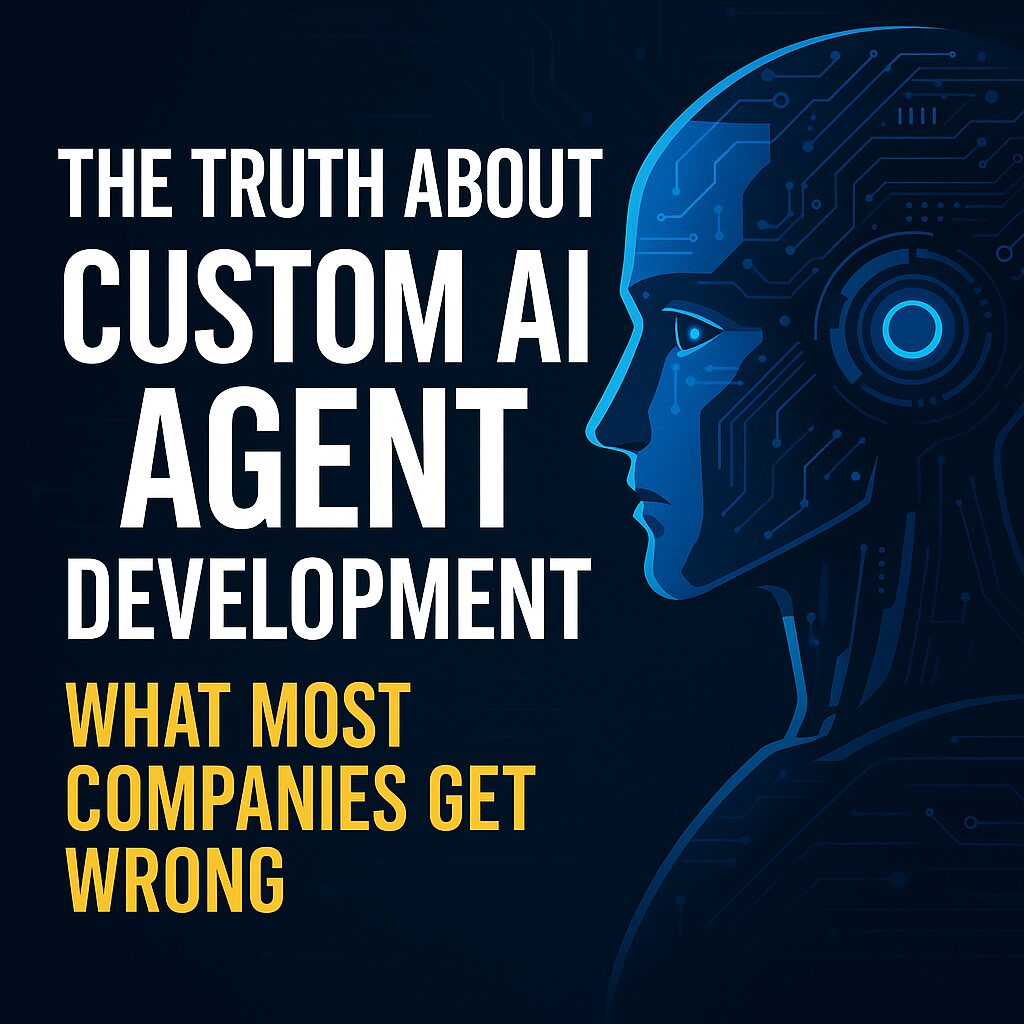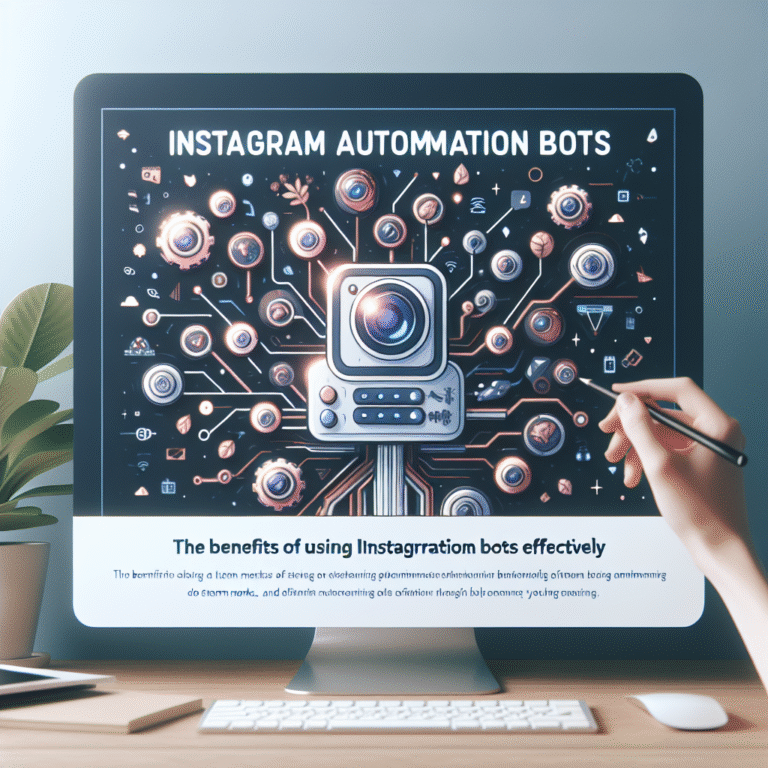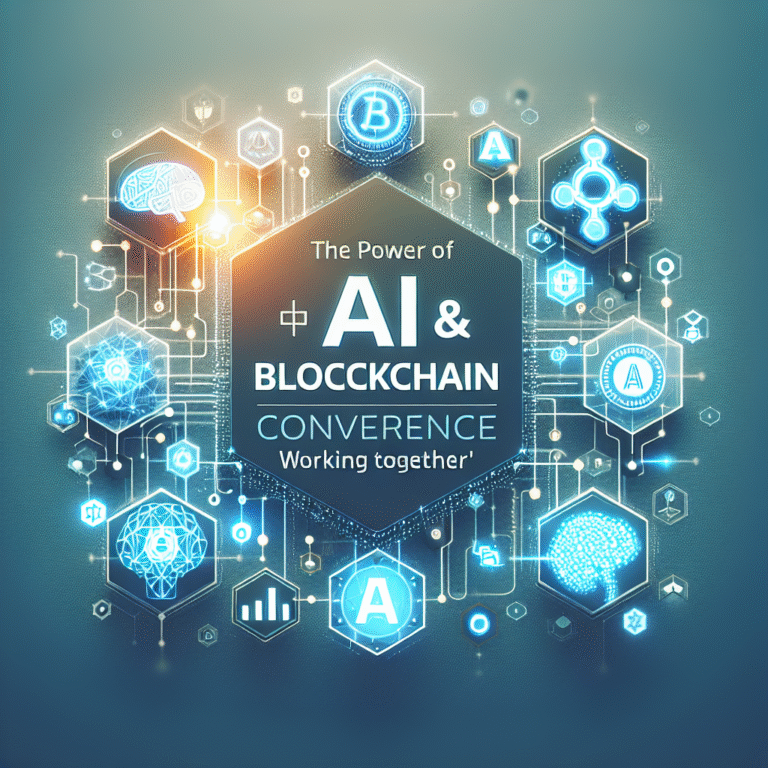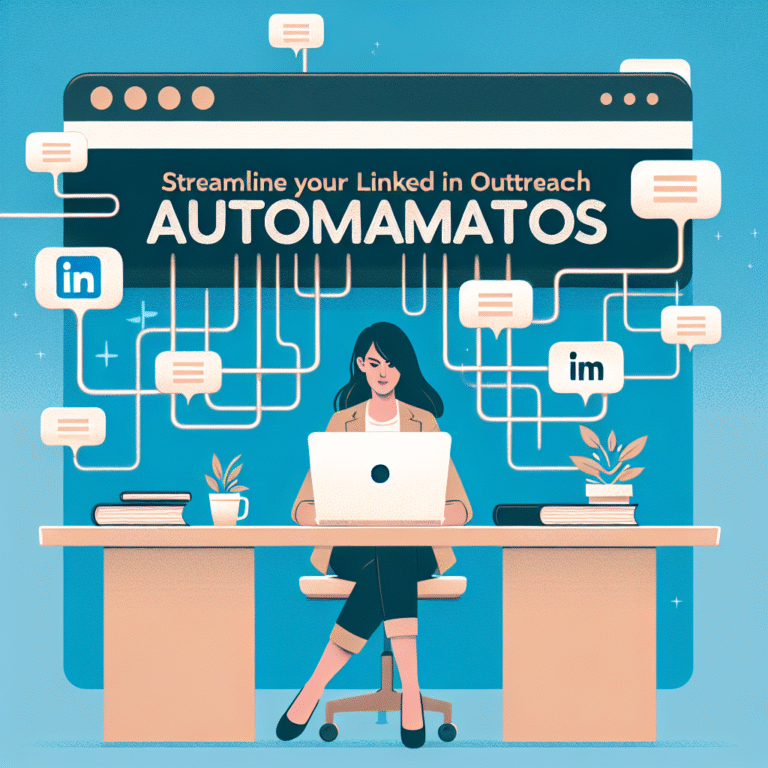Businesses of all sizes now embrace custom AI agent development to transform their operations, and the results speak for themselves. Companies using custom AI solutions have cut fraudulent transactions by 80% while reducing manual reviews by 40%. The promising results are clear, but many organizations still struggle to discover the full potential of AI agent technology.
Our custom AI agent development company has seen remarkable benefits from well-implemented AI solutions. Customer response times have improved by 60%, and support now runs around the clock. Creating an effective AI agent takes more than jumping on the latest tech trend. Today’s AI agents must grasp context, make independent decisions, operate on multiple platforms and learn continuously from their results.
This piece reveals the reality of custom AI agent development and explains critical mistakes most companies make while implementing these powerful tools. The insights will help you maximize your investment and reach the 95% user retention rates that leading AI solutions deliver, whether you plan your first AI implementation or want to enhance existing systems.
What is a Custom AI Agent?
Image Source: VectorStock
Custom AI agents are way ahead of simple automation tools and generic AI models. These intelligent systems understand your business context, make decisions on their own, and work throughout your digital world without needing constant human oversight.
Definition and core components
A custom AI agent is a purpose-built software system that uses artificial intelligence to chase specific goals and handle complex tasks for users. These agents don’t just follow strict rules like standard algorithms – they can reason, plan, and learn as they go.
A well-designed custom AI agent combines several crucial parts that work together:
- Perception Module: Gathers and interprets information from many sources, including user queries, system logs, or sensor readings
- Memory System: Keeps information from past interactions and combines immediate context with stored knowledge
- Reasoning Engine: Looks at data, spots patterns, and makes smart decisions based on evidence and context
- Planning Component: Takes big problems and breaks them into smaller tasks to find the best way forward
- Action Module: Puts decisions into practice by working with digital systems or physical environments
- Learning Mechanism: Gets better over time as it learns from feedback and experience
These parts create an ongoing cycle where the agent sees, thinks, acts, and learns. This helps it work on its own as conditions change.
How it is different from off-the-shelf AI tools
Custom AI agents are built specifically for your business needs. They provide intelligence that matches your operations exactly. This makes them quite different from generic AI solutions that come with standard features and limited options for customization.
Here’s what sets them apart:
Data Sovereignty: Your data stays in your systems with custom solutions. No third-party servers get involved unless you want them to – this matters a lot for healthcare, finance, and government work.
Integration Capabilities: They fit right into your internal systems (ERP, CRM, CMS) without needing extra tools or complicated fixes. Everything stays in sync live.
Tailored Workflows: These agents understand your specific way of doing things, including your company’s processes, customer types, and how you make decisions.
Scalability: Your custom AI agent grows with your business. You can add new features, languages, or change the setup without waiting for vendors.
Competitive Advantage: These agents learn your special sauce – your data, how you make decisions, and your workflows. Regular tools just can’t match that.
Examples of custom AI agents in action
Companies in different fields use custom AI agents to solve specific problems:
Healthcare: These agents look through patient records while following HIPAA rules. They spot possible risks and handle sensitive information carefully.
Finance: Banks use custom AI systems to catch fraud. These systems work with their specific risk models and follow all the rules they need to.
Retail: Fashion brands employ AI stylists that change what they suggest based on weather, new trends, and how each customer shops – making the experience more personal.
Manufacturing: Some companies use systems that cut equipment downtime by 60%. This makes them leaders in running efficient operations.
Insurance: Claims agents automate complex work by using company-specific rules and following compliance needs. This speeds up processing by a lot.
These systems work so well because they fit perfectly with how each business operates, instead of making companies change to match pre-built AI tools.
The Real Benefits of Custom AI Agent Development
Custom AI agents do much more than simple automation. They give businesses new ways to optimize operations, build customer relationships, and boost profits. Studies show companies that use AI-driven processes see remarkable results in many areas.
Automation of complex workflows
Custom AI agents excel at managing complex business tasks that once needed extensive human input. These smart systems handle complete workflows with minimal oversight and create optimized operations between departments. To cite an instance, AI agents process incoming questions, set priorities, and draft responses. This keeps your staff focused on strategy and state-of-the-art solutions instead of managing inboxes.
These AI agents learn from results and get better over time. This learning ability lets businesses automate more complex tasks as the system grows. NVIDIA’s specialized agents helped 5,000 engineers save about 4,000 engineering days in just one year. They did this by optimizing design, verification, and documentation processes.
Improved decision-making with machine learning
Custom AI agents change how decisions are made. They analyze huge datasets in real-time, spot patterns, and provide useful insights. Through machine learning algorithms, these systems detect problems instantly. This lets managers act quickly on potential issues or opportunities.
Decisions get better as AI agents process past trends, market data, and internal metrics to plan resources well. Leaders get continuous updates instead of waiting for weekly or monthly reports. This enables analytical insight-based decisions. Investment management shows this value clearly – BlackRock’s Aladdin Copilot has cut research time from minutes to seconds while making better data-backed investment choices.
24/7 customer service with AI chatbots
One clear benefit of custom AI agents is round-the-clock customer support. AI chatbots work continuously, unlike human agents who have limited hours. They offer instant help whatever the time zone, holiday, or office hours.
Companies using AI agents report better customer satisfaction scores. Salon chain HelloSugar automates 66% of customer queries with AI agents and saves $14,000 monthly. Cosmetics brand Lush uses AI agents to handle common questions. This frees their human agents to focus on complex issues that need their expertise.
Personalized user experiences
Custom AI agents make experiences more personal by connecting to backend systems and using relevant customer data during chats. They create tailored interactions that feel personal by analyzing browsing history, purchase patterns, and user priorities.
Personal AI experiences boost revenue growth. Research shows companies that focus on tailored customer experiences see three times the revenue growth compared to others. AI works well because it can analyze vast data and adjust experiences like follow-up emails, promotions, or reminders. This deepens relationships that lead to repeat business.
Cost savings and operational efficiency
Using custom AI agents saves money in several ways:
- Lower labor costs by automating routine tasks
- Less cost-per-interaction than human agents
- Growth without proportional expense increases
- Up to 50% less customer acquisition costs through personalization
These savings come while making operations better. A leading consumer goods company used smart agents to create blog posts. They cut costs by 95% and worked 50 times faster—publishing new content in one day instead of four weeks.
Custom AI agents are a strategic investment that pays off through both cost savings and higher revenue.
The Custom AI Agent Development Process Explained
Building effective AI agents needs both technical skills and business understanding. The technology might be complex, but knowing the main development stages helps companies guide this process well.
1. Discovery and goal setting
The development starts when you clearly define your AI agent’s purpose. You need SMART (Specific, Measurable, Achievable, Relevant, Time-bound) objectives that match your business goals. A healthcare provider might want to build an AI agent that reduces patient intake processing time by 50% while keeping 95% accuracy in patient information collection. Clear goals tell you what the AI agent will do, who it helps, and how to measure its success.
2. Choosing the right AI model (e.g., GPT, Gemini)
Your agent’s abilities depend on picking the right AI model. Each major model has its strengths:
- GPT-4/GPT-4o: Works best for quick, accurate code completions and general tasks
- Claude models: Shows better results with long documents (200K token context window) and strong reasoning
- Gemini: Stands out in multimodal analysis and Google ecosystem integration
Pick a model that fits your needs, industry, and setup. Financial services, healthcare, and legal firms often do better with Gemini’s long-context features. Startups building chat apps might prefer OpenAI’s tools.
3. Training and fine-tuning with your data
Fine-tuning takes pre-trained models and customizes them for your specific needs with your data. This saves time and money compared to building models from scratch. Think of it as giving your AI a crash course in your company’s knowledge. You’ll need to pick the right datasets, clean them up, and adjust the model’s settings for your tasks.
4. Integration with existing systems (CRM, ERP, APIs)
AI agents must work smoothly with your current systems. They connect through APIs that let them read, write, and update data across platforms like CRM, ERP, and other business tools. You can use direct API integration, platforms like MuleSoft or Workato, or build agents into systems like ServiceNow or Microsoft Power Platform.
5. Testing and deployment
Good testing must happen before launch. This includes unit testing, integration testing, and user acceptance testing to check accuracy, responses, and user experience. Companies with good testing phases are 60% more likely to succeed in production. Many teams like to use a “shadowing” approach, where the AI agent runs alongside current processes before taking full control.
6. Ongoing monitoring and optimization
The work doesn’t stop after deployment. Regular checks of token usage, response quality, and speed help track how well things work. Companies that keep improving their systems see 35% higher ROI on AI investments. AI agent observability helps too – it tracks agent actions, decisions, and resource usage to find ways to make things better.
Common Use Cases Across Industries
AI agents now solve industry-specific challenges with remarkable precision in businesses of all types. These tailored solutions create value across different sectors in unique ways.
Retail and eCommerce: Personalized recommendations
AI-driven recommendations have helped smart retailers generate significant revenue. Amazon’s generative AI product suggestions directly influence 35% of their total purchases. Studies show that individual-specific recommendations can drive purchase rates up by 70% and increase average order values by 33%. AI’s power to analyze browsing history, purchase patterns, and customer priorities creates genuine shopping experiences tailored to each user.
Finance: Fraud detection and risk analysis
Financial institutions must combat increasingly sophisticated fraudsters. AI solutions analyze transaction patterns and separate legitimate activities from suspicious ones. American Express saw a 6% improvement in fraud detection with advanced LSTM AI models. PayPal’s worldwide AI systems boosted their live fraud detection capabilities by 10%. Banks typically lose about 5% in annual revenue to operational fraud, making these improvements significant. DBS Bank’s AI-powered compliance systems cut false positives by 90% and improved detection accuracy by 60%.
Healthcare: Virtual medical assistants
Healthcare providers now rely on AI assistants to handle administrative work while improving patient care. These assistants take care of appointment scheduling, health record updates, and patient questions. Medical conversations between doctors and patients automatically convert to structured notes through AI-powered scribes that update health records with minimal doctor input. The systems verify insurance and streamline billing, which reduces errors and lets medical professionals focus on patients rather than paperwork.
Logistics: Route optimization and tracking
AI-powered route optimization has changed how delivery companies operate. The systems process live traffic data, weather conditions, and driver schedules to create the quickest delivery paths. Companies that use AI routing solutions report 15% lower fuel costs and 35% better on-time arrivals. These systems fine-tune schedules based on changing conditions and show performance metrics through accessible dashboards.
Legal: Document review and compliance
Law firms now exploit custom AI solutions to change document-heavy processes. AI tools automate electronic document identification and classification, extract key details, and summarize lengthy materials. The legal industry has embraced this change, with 77% of professionals using AI for document review. Each legal professional saves roughly 240 hours annually. This technology complements human expertise by handling repetitive tasks and highlighting critical information that humans might miss.
Challenges and Misconceptions Companies Face
Businesses show growing excitement about AI technology, yet they often fail to implement custom AI agents because of lasting misconceptions. Success depends on knowing these challenges.
Assuming one-size-fits-all AI works
Companies often try generic AI solutions and expect them to work everywhere. These broad AI approaches don’t deal very well with specific industry rules, details, and workflows. This path results in poor outcomes. 42% of businesses scrapping AI initiatives proves this point. AI needs custom solutions that tackle each business’s unique challenges.
Underestimating the need for quality data
Bad data quality remains the biggest problem in AI success. Even the best AI algorithms produce wrong results with poor quality data. Andrew Ng puts it well: “If 80 percent of our work is data preparation, then ensuring data quality is the most critical task”. Research shows how data quality affects AI model performance, accuracy, and reliability directly.
Ignoring integration complexity
AI integration with current systems creates major roadblocks. Almost half the companies say their platforms are only “somewhat ready” to handle AI’s data needs. About 42% must connect to eight or more data sources. Legacy systems usually lack proper APIs, which creates technical bottlenecks.
Overlooking long-term maintenance
Most companies see deployment as the end rather than the beginning. Models drift without active maintenance as real-life conditions change. Companies with continuous improvement processes see 35% higher ROI on their AI investments.
Confusing chatbots with intelligent agents
Companies often mix up chatbots with intelligent agents. Regular chatbots follow scripts and have limited understanding. AI agents think, learn from interactions, and work on their own. These agents mark a fundamental step forward. They understand context and handle complex tasks without preset workflows.
Conclusion
Custom AI agent development marks a fundamental change in business approaches to artificial intelligence. This piece shows how tailored AI solutions perform better than generic alternatives in multiple ways. Successful companies share a similar mindset – they see AI agents as strategic assets, not just trendy additions.
Success with AI requires understanding that generic solutions rarely give the best results. Organizations should invest in systems built for their specific processes, data environments, and business goals. Numbers tell the story clearly – companies see 80% fewer fraudulent transactions and respond to customers 60% faster.
Quality data serves as the foundation of effective AI systems. Many companies overlook this vital component that determines whether an AI agent delivers exceptional results or mediocre performance. AI expert Andrew Ng points out that data preparation takes up 80% of AI work.
The development process needs careful planning and execution. The key phases from discovery to deployment create a framework that each organization adapts to its needs. Organizations that monitor and refine their AI systems after launch see transformative results instead of failed experiments.
Industry examples show how custom AI solves specific challenges in different sectors. These applications prove AI’s adaptability when customized properly, from optimizing delivery routes to detecting financial fraud and streamlining healthcare administration.
Many companies misunderstand AI capabilities. Understanding what separates basic chatbots from intelligent agents helps set realistic expectations and achieve meaningful outcomes.
Businesses looking at AI agent development need clear objectives, high-quality data, technical expertise, and consistent maintenance. These principles help avoid common mistakes and position organizations to gain substantial benefits from custom AI agents.
Key Takeaways
Custom AI agent development offers transformative business value when implemented correctly, but success requires avoiding common misconceptions and following proven best practices.
• Custom beats generic: Tailored AI agents deliver 80% fraud reduction and 60% faster response times versus one-size-fits-all solutions that often fail.
• Data quality determines success: Poor data quality causes 42% of AI initiatives to fail – invest 80% of effort in data preparation for optimal results.
• Integration complexity is real: Nearly half of companies struggle with AI integration – plan for connecting 8+ data sources and legacy system compatibility.
• Maintenance is ongoing: AI agents require continuous monitoring and optimization – companies with improvement processes see 35% higher ROI.
• Agents aren’t chatbots: True AI agents reason, learn, and take autonomous actions beyond scripted conversations – understand the difference for realistic expectations.
The key to success lies in treating AI agents as strategic assets requiring proper planning, quality data, seamless integration, and long-term commitment rather than quick technological fixes.
FAQs
Q1. What are the key components of a custom AI agent? Custom AI agents typically include modules for perception, memory, reasoning, planning, action execution, and continuous learning. These components work together to enable the agent to understand context, make decisions, and take autonomous actions.
Q2. How do custom AI agents differ from off-the-shelf AI solutions? Custom AI agents are built specifically for a company’s unique needs, offering tailored intelligence and seamless integration with existing systems. They provide greater data control, scalability, and competitive advantage compared to generic AI tools.
Q3. What are some common challenges in implementing custom AI agents? Key challenges include underestimating the importance of quality data, overlooking integration complexity with existing systems, and failing to plan for long-term maintenance and optimization of the AI agent.
Q4. How can businesses measure the success of their custom AI agent implementations? Businesses should focus on specific, measurable outcomes like cost savings, improved efficiency, or enhanced customer satisfaction. For example, a custom AI agent might reduce customer response times by 60% or automate 70% of support tickets.
Q5. What industries are seeing the most impact from custom AI agents? Custom AI agents are making significant impacts across various sectors, including retail (personalized recommendations), finance (fraud detection), healthcare (virtual medical assistants), logistics (route optimization), and legal (document review and compliance).




